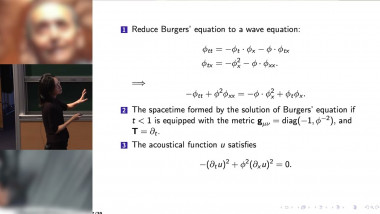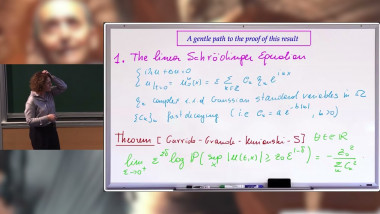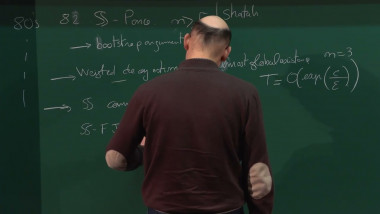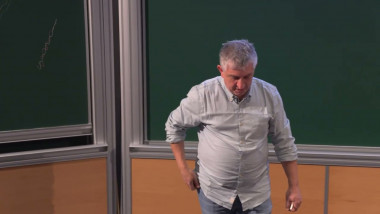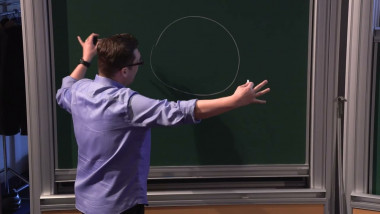Appears in collection : Jean Morlet Chair 2021- Conference: Kinetic Equations: From Modeling Computation to Analysis / Chaire Jean-Morlet 2021 - Conférence : Equations cinétiques : Modélisation, Simulation et Analyse
The viewpoint proposed in this lecture is that uncertainty quantification for kinetic equations does not always represent the viewpoint of the experimentalists. Instead they want to determine the uncertain coefficient in a PDE by measuring the solution at the parts of the boundary, given data on other parts of the boundary. In other words experimentalists are interested in solving the inverse problem in a Baysian setting.
We shall give examples and results to this end. In particular we shall consider a model from mathematical biology, namely the motion of cells, as described by the kinetic chemotaxis equations. The corresponding macroscopic Keller-Segel type model will be a diffusion equation. Our aim is to study the inverse problems for these two settings. We shall analytically study the convergence of the inverse problem of the kinetic equation to the inverse problem of the corresponding diffusion equation.
This is joint work with Kathrin Hellmuth, Qin Li and Min Tang
